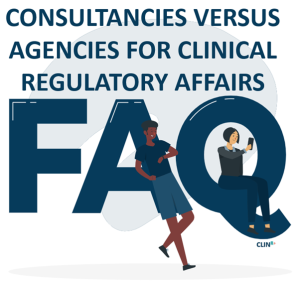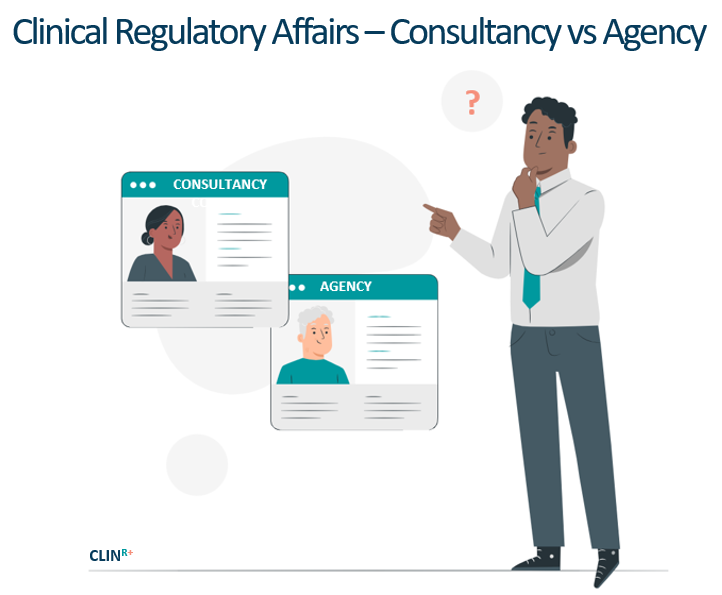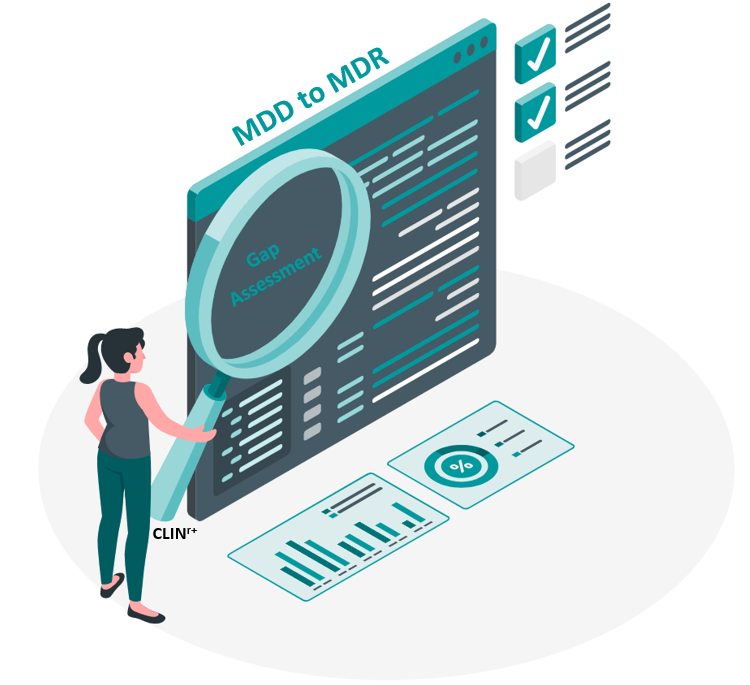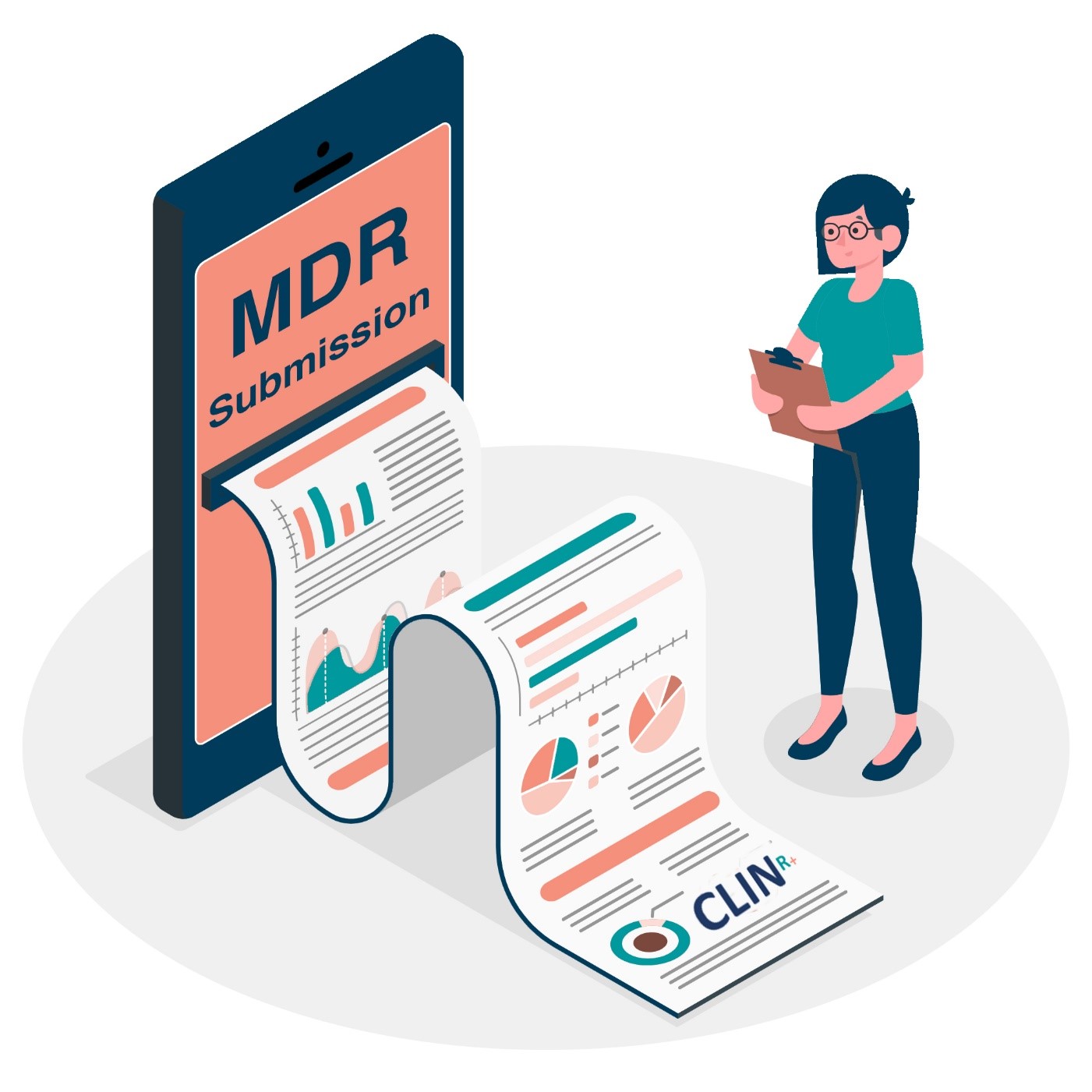Consultancies versus Agencies for Clinical Regulatory Affairs FAQ

Q: What is the difference between consultancies and agencies for Clinical Regulatory Affairs?
A: Consultancies and agencies in Clinical Regulatory Affairs operate differently despite their apparent similarities. While both serve to provide support to manufacturers in regulatory compliance, they diverge in their structure, services, and engagement with clients.
Q: What does a Clinical Regulatory Affairs agency do?
A: Agencies act as intermediaries between manufacturers and external experts, facilitating recruitment for specific project needs. They primarily focus on finding and contracting individuals based on the outlined project requirements. However, their expertise may be limited, often necessitating detailed briefing and supervision from the manufacturer.
Q: What does a Clinical Regulatory Affairs consultancy do?
A: Consultancies offer comprehensive project services, providing expert advice and managing the execution of projects from start to finish. They employ seasoned professionals with specialized knowledge and experience, often working together in cohesive teams. Consultancies aim to deliver tailored solutions, leveraging their established workflows and templates for efficient project delivery.
Q: Can agencies also provide consultancy services?
A: While theoretically possible, agencies may struggle to effectively transition into providing consultancy services due to their primary function being recruitment. Their lack of expertise and familiarity with the project’s nuances can hinder effective collaboration and project management. In contrast, consultancies inherently specialize in offering expert guidance and strategic advice, ensuring smoother project execution.
Q: What are the key differences between agencies and consultancies?
A: Agencies typically engage external contractors on behalf of clients, acting as a liaison throughout the project. They focus on recruiting suitable individuals but may lack comprehensive expertise in regulatory affairs. Consultancies, on the other hand, have cohesive teams of experts who manage and oversee regulatory activities directly. They provide strategic advice, regulatory expertise, and solutions tailored to the client’s needs.
Q: What services are provided by agencies and consultancies for Clinical Regulatory Affairs?
A: Agencies primarily focus on recruiting contractors for specific roles within projects, relying heavily on client-provided project outlines. Conversely, consultancies offer a broader range of services, including strategy development, document preparation, submission support, and navigating complex regulatory processes. Their services are geared towards ensuring regulatory compliance and facilitating strategic decision-making.
Q: What are the personnel differences between agencies and consultancies?
A: Agencies recruit professionals based on project requirements, which may result in teams with varying expertise and potentially conflicting styles. In contrast, consultancies are staffed by regulatory experts and subject matter specialists who have worked together on similar projects. This cohesive team structure enables smoother collaboration and more efficient project execution.
Q: Should you work with an external agency or a consultancy in Clinical Regulatory Affairs?
A: The decision should be based on factors such as the project’s nature, level of expertise required, budget constraints, and preferred working relationship. Agencies are suitable for quick projects or when specific vacancies need filling, whereas consultancies are ideal for comprehensive project solutions, specialized knowledge, and strategic guidance. Budget considerations, project complexity, and long-term support needs also influence the choice.
Q: What do you need to consider before selecting an agency or consultancy for Clinical Regulatory Affairs support?
A: Before deciding, it’s crucial to evaluate project needs thoroughly. For agencies, this involves a recruitment-like process for each contractor, assessing qualifications and experience. Consultancies are preferable for full project undertakings, as they assemble the necessary team and provide comprehensive support. It’s essential to differentiate between agencies and consultancies, as some agencies may market themselves as consultancies despite differing in expertise and services offered.






